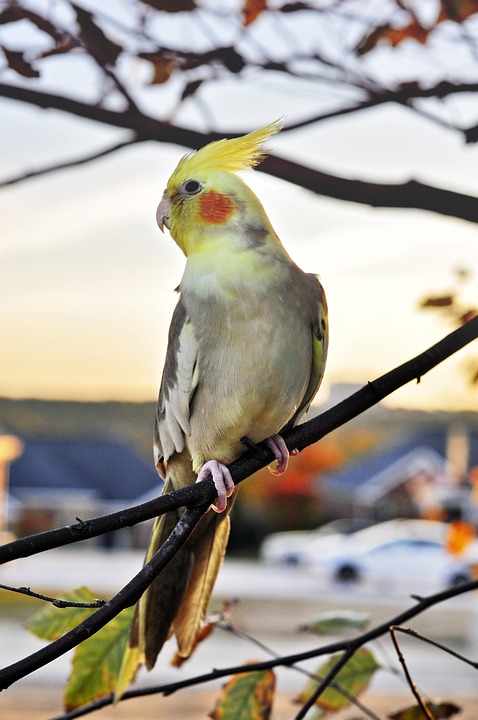Parrot training is an essential part of fostering a healthy and interactive relationship with your feathered friend. However, sometimes parrots can develop possessiveness over their training rewards, which can lead to behavioral issues and challenges during training sessions. In this article, we will explore effective techniques to discourage parrots from becoming possessive over their training rewards, ensuring a smooth and enjoyable training experience for both you and your parrot.
Understanding Possessiveness and its Impact on Parrot Training
Before diving into the methods to discourage possessiveness, it’s crucial to grasp why parrots develop this behavior and its implications on their training progress. Possessiveness over training rewards often stems from the bird’s natural instinct to protect valuable resources, such as food or toys. When a parrot perceives a reward as highly valuable, it may become possessive, leading to aggression, biting, or refusal to cooperate during training sessions.
Possessiveness can hinder the training process and strain the bond between you and your parrot. Therefore, it is essential to address this behavior promptly and effectively.
Establishing a Balanced Reward System
One of the fundamental aspects of discouraging possessiveness is establishing a balanced reward system. By implementing the following techniques, you can ensure that your parrot understands that rewards are not exclusive possessions, but rather something to be earned and shared.
1. Use a Variety of Rewards: Instead of relying solely on one type of reward, introduce a variety of treats and toys during training sessions. This helps your parrot understand that rewards are not limited to a specific item, reducing possessiveness.
2. Gradual Desensitization: If your parrot already displays possessiveness over a particular reward, gradually desensitize them to its value. Start by offering a lesser-valued reward alongside the coveted one. Over time, decrease the coveted reward’s value while increasing the value of the alternative reward. This technique helps your parrot understand that the value lies in the training, not the specific reward.
3. Rotate Rewards: Regularly rotate the rewards you offer during training sessions. This prevents your parrot from fixating on a single item and becoming possessive. Additionally, rotating rewards keeps training sessions exciting and engaging for your parrot.
Positive Reinforcement Techniques
Implementing positive reinforcement techniques can significantly contribute to discouraging possessiveness and promoting a healthy training environment. The following techniques can be effective in this regard:
1. Reward Sharing: Encourage your parrot to share rewards with you by initially offering a portion of the reward to them and then requesting them to return it to you. Gradually increase the portion they need to return, reinforcing the idea of sharing and reducing possessiveness.
2. Rewarding Non-Possessive Behavior: Whenever your parrot displays non-possessive behavior during training, reward them with praise, treats, or a favorite toy. This reinforces the positive behavior, encouraging them to continue exhibiting it.
3. Clicker Training: Utilize clicker training as a valuable tool to mark desired behaviors and reward your parrot accordingly. By associating the click sound with rewards, your parrot will understand that their actions lead to positive outcomes, reducing the focus on possessiveness.
FAQs About Discouraging Possessiveness in Parrots
Q: Can all parrots develop possessiveness over training rewards?
A: While possessiveness can be observed in many parrots, individual personalities and past experiences can influence its intensity. However, implementing the techniques mentioned in this article can help address possessiveness in most cases.
Q: How long does it take to discourage possessiveness in parrots?
A: The timeline for discouraging possessiveness may vary depending on your parrot’s personality and the consistency of your training efforts. With patience and consistent implementation of the recommended techniques, you should start seeing positive changes within a few weeks.
Q: Are there any risks involved in discouraging possessiveness?
A: When addressing possessiveness, it is essential to prioritize safety and your parrot’s well-being. Always observe your parrot’s behavior closely and consult an avian veterinarian or an experienced parrot trainer if you encounter any concerning or aggressive behavior during the training process.
Q: Can possessiveness recur after successful discouragement?
A: Parrots can occasionally revert to possessive behavior, especially if they perceive a change in the value of the reward or experience stress or new environmental factors. In such cases, it is crucial to reinforce the training techniques and revisit the fundamentals to discourage possessiveness once again.
By following the techniques outlined in this article and maintaining consistency and patience, you can effectively discourage possessiveness over training rewards in your parrot. Remember, creating a positive and trusting training environment is key to a successful and fulfilling relationship with your feathered companion.









